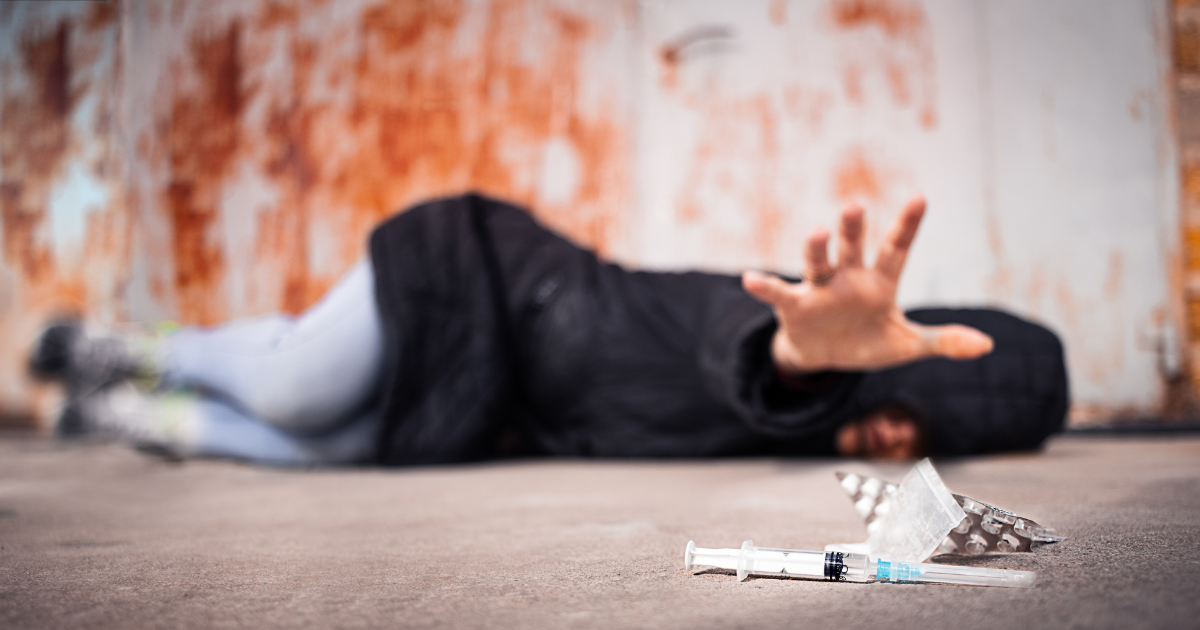For substance use disorders, relapse rates range from 40% to 60%.¹ Although relapsing does not mean treatment has failed, it is important to quickly take action if a loved one with a substance use disorder falters in their recovery. Learn the signs of relapse in a loved one and why this problem occurs in the first place.
Understanding the Risk of Relapsing
Addiction is a chronic disease that makes structural changes to the brain, which can take time to repair. The treatment of chronic diseases like addiction involves the process of changing deeply rooted behaviors, which takes time and effort.
Each day, your loved one has to actively work to remain sober, and the neurological changes the substance has made to their brain can interfere, causing cravings and negative behaviors.
Although the first few weeks after getting sober are when most relapses occur, your loved one can relapse at any time.
Stages of Relapse
Relapsing happens gradually, beginning with an emotional relapse.²
Emotional Relapse
An emotional relapse can begin weeks before your loved one uses again when they are not thinking about using. Their emotions and behaviors can set them up for a relapse, and since they are not actively considering using, they may be in denial about the real risk of relapsing.
Mental Relapse
Emotional relapse leads to mental relapse. During this stage, your loved one battles their thoughts, part of them wanting to use and the other wanting to remain sober. As this stage progresses, cognitive resistance to relapse diminishes, and the need for relief increases.
Physical Relapse
Physical relapse is when your loved one starts using. Once the person has used it again, it is much easier to fall into a pattern of misuse.
Relapse Triggers
Certain triggers can cause severe cravings in a loved one, making them feel like they need drugs or alcohol to cope.
Negative emotions like anxiety and stress are some of the most common triggers. If your loved one does not know how to manage these emotions, they may use substances to alleviate their distress.
If your loved one battle a co-occurring mental health condition, they might resort to substance use if the symptoms become too powerful. Because of this risk, treating addiction and mental health conditions simultaneously is crucial.
Environmental triggers can also lead to relapse. Going to locations that remind your loved one of substance use, being with people with whom they used to engage in addictive behaviors, or putting themselves in situations where there is access to drugs or alcohol can all cause a relapse.
Social interactions with people from their days of addiction can be especially challenging, but so can isolation. Social isolation can make it difficult for your loved one to remember their reasons for staying sober and can aggravate other mental health challenges.
Loss of motivation can also be a relapse trigger. To remain in recovery, your loved one needs to stay busy and engage in positive activities that encourage sobriety, but outside of structured treatment programs, it can be tough to maintain the right level of motivation. Your loved one can quickly fall back on old patterns without the motivation to stay sober.
Warning Signs of Relapse
Some of the most common warning signs include:
- Isolation
- Avoiding sponsors
- Mood swings
- Not attending meetings
- Neglecting responsibilities
- Finding substances and paraphernalia
- Defensiveness
- Financial problems
- Withdrawal symptoms
- Spending time with old acquaintances
- Neglecting personal hygiene
- Lying
Another common sign of relapse to watch for is overconfidence. Having realistic confidence in their recovery is a positive thing, but if your loved one is getting ready to end treatment or aftercare programs because they don’t feel they need help any longer, it can point to a relapse.
How to Approach a Loved One Who Has Relapsed
If your loved one has relapsed, you should be positive when speaking with them. Remind them that they have stopped using it before and that they can do so again. Remind them why they went into recovery in the first place, and focus on your love for them.
Don’t blame or shame them. They will likely already feel shame and don’t need the added emotional distress.
You need to encourage them to get help again. Relapsing doesn’t always mean returning to rehab but could include attending more 12-step meetings or contacting sponsors. For some, however, rehab can be necessary. Brainstorm treatment options with your loved one to help them see that you are there for them and will support them as they begin recovery again.
You can suggest an addiction treatment program if your loved one needs more structure. They might feel like returning to a treatment program is a step backward or an admission of failure. Let them know this is a normal part of the recovery process.
Invite open communication. Let your loved one know you are there to listen to them without judgment and encourage them to meet with peers who have gone through the various stages of recovery. Hearing from others who have gotten sober after a relapse can help.
Recognize the Signs of Relapse in a Loved One
Relapse is a part of the recovery process. It does not mean your loved one lacks willpower or will never get sober. It is only a temporary stage in achieving long-term sobriety.
If you see signs that your loved one has relapsed, reach out to them and encourage them to get help. At Wolf Creek Recovery, we offer various treatment programs for substance use disorders and an extended care program that can help your loved one learn relapse prevention techniques and much more.
Contact Wolf Creek Recovery today to learn more about our programs.
Sources:
[1] https://nida.nih.gov/publications/drugs-brains-behavior-science-addiction/treatment-recovery [2] https://www.ncbi.nlm.nih.gov/pmc/articles/PMC4553654/
Finding purpose in pain is what Jonathon does best. He is a strong advocate for those suffering from substance use disorders. As a person in recovery, Jonathon knows how important it is to receive empathy and compassion. He recognizes that each person comes from a different set of circumstances and deserves to be valued and respected.
With a fresh perspective and compassionate attitude, Jonathon works closely with clients to help them let go of the past and know when to take necessary risks. The recovery process is ongoing, which means people need to move forward while applying the skills learned in treatment. Jonathon is a great motivator when it comes time for this!
Jonathon also places emphasis on the family unit and how it can make or break the recovery experience. Individuals with active, supportive families have far better outcomes. Jonathon realizes that it’s impossible to move mountains overnight, but with the right support team and positive attitude, anything is possible.












